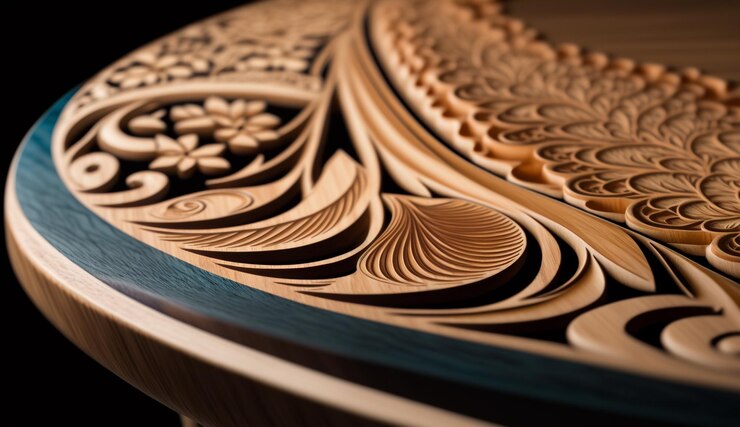MDF, or Medium-Density Fiberboard, may seem like just another material, but in the hands of skilled craftsmen, it transforms into a canvas for breathtaking creations. MDF cutting is not just about slicing through a sheet of wood; it’s an art form that demands precision, creativity, and an understanding of the material’s unique properties.
This version seamlessly integrates “Cutting MDF Services” into the sentence, emphasizing the role of skilled professionals in transforming MDF.
Page Contents
1. Introduction: Beyond the Sheet
MDF, or Medium-Density Fiberboard, might appear to be just another common building material, but in the skilled hands of experienced craftsmen, it undergoes a remarkable transformation, becoming a canvas for truly breathtaking creations. This isn’t simply a matter of cutting through a sheet of wood; MDF cutting is an art form that demands a high degree of precision, a vibrant streak of creativity, and a profound understanding of the material’s distinctive characteristics.
The process transcends mere fabrication; it involves a deep appreciation for the material’s inherent qualities. Understanding the nuances of MDF, such as its density variations and the direction of its internal fibers, allows the craftsman to manipulate the material with finesse. This knowledge is critical in ensuring clean cuts, minimizing the risk of chipping or splitting, and ultimately achieving the desired aesthetic outcome.

2. Unleashing Creativity: Versatility of MDF
MDF, with its uniform density and smooth surface, offers unparalleled versatility. It can be easily shaped, routed, and carved, making it an ideal medium for a wide range of applications. From intricate furniture designs to delicate decorative elements, the possibilities are virtually limitless.
- Furniture Design: Imagine sleek, modern cabinets, elegant tables, and comfortable chairs all crafted from intricately cut MDF.
- Decorative Elements: Think of ornate wall panels, decorative mouldings, and unique architectural features that add a touch of sophistication to any space.
- Custom Projects: The versatility of MDF allows for creating truly unique and personalized items, from custom-made toys to one-of-a-kind gifts.
3. The Craftsmanship: Precision and Skill
The art of MDF cutting lies in the ability to translate a vision into reality. Whether it’s a designer’s sketch, a customer’s request, or an original concept, the cutter must possess a keen eye for detail and a deep understanding of the cutting process.
- Technological Advancements: Modern technology has revolutionized MDF cutting, with advanced machinery like CNC routers offering unprecedented levels of accuracy and efficiency. These machines can execute complex cuts with incredible speed and precision, bringing intricate designs to life with remarkable detail.
- The Human Touch: While technology plays a vital role, the human touch remains crucial. Skilled operators are needed to program the machines, ensuring that the final product meets the highest standards of quality and craftsmanship.
4. Understanding the Material:
Beyond the technical aspects, the art of MDF cutting also involves a deep appreciation for the material itself. Understanding its strengths and limitations is essential for achieving optimal results.
Here’s an attempt to add more words to the provided descriptions, while maintaining their original meaning:
- Grain Direction:
- Original: Understanding the grain direction helps to prevent the material from splitting or chipping during the cutting process.
- Expanded: Comprehending the orientation of the wood fibres within the MDF sheet is crucial for optimizing the cutting process. Cutting against the grain can increase the likelihood of the material splitting or chipping, potentially compromising the integrity and aesthetic appeal of the finished product.
- Density Variations:
- Original: Variations in density can affect the cutting process and the product’s final appearance.
- Expanded: MDF, despite its engineered nature, may exhibit slight variations in density throughout the sheet. These density fluctuations can influence the cutting process, potentially leading to inconsistent cutting depths, uneven surfaces, and variations in the final appearance of the finished product.
- Warping and Chipping:
- Original: The cutter must minimize the risk of warping or chipping during and after the cutting process.
- Expanded: To ensure the highest quality results, the cutter must implement strategies to mitigate the risk of warping or chipping. This may involve careful material selection, precise cutting techniques, proper material handling and storage, and the use of appropriate finishing techniques to prevent moisture absorption and subsequent dimensional instability.
These expanded descriptions aim to provide a more in-depth understanding of these critical factors in the MDF cutting process.
5. Showstopping Results: Transforming Vision into Reality
The result of this artful process is nothing short of spectacular. From sleek, minimalist furniture to ornate decorative panels, MDF cutting gives life to a myriad of designs. It allows for the creation of unique pieces that reflect the individual style and preferences of the customer.
The art of MDF cutting transforms ordinary sheets into extraordinary showpieces, whether it’s a custom-made kitchen cabinet, a one-of-a-kind piece of furniture, or intricate decorative elements. This process exemplifies the power of human ingenuity and serves as a testament to the enduring beauty of craftsmanship.
Conclusion
MDF cutting is more than just a manufacturing process; it’s an art form that combines technical expertise with creative vision. By understanding the material, utilizing advanced technology, and applying meticulous craftsmanship, skilled cutters can transform ordinary sheets of MDF into truly remarkable and inspiring creations.










Leave a Comment